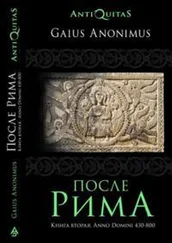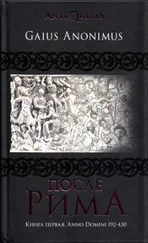Julius Vogel - Anno Domini 2000; or, Woman's Destiny
Здесь есть возможность читать онлайн «Julius Vogel - Anno Domini 2000; or, Woman's Destiny» — ознакомительный отрывок электронной книги совершенно бесплатно, а после прочтения отрывка купить полную версию. В некоторых случаях можно слушать аудио, скачать через торрент в формате fb2 и присутствует краткое содержание. Издательство: Иностранный паблик, Жанр: foreign_sf, literature_19, foreign_antique, foreign_prose, на английском языке. Описание произведения, (предисловие) а так же отзывы посетителей доступны на портале библиотеки ЛибКат.
- Название:Anno Domini 2000; or, Woman's Destiny
- Автор:
- Издательство:Иностранный паблик
- Жанр:
- Год:неизвестен
- ISBN:нет данных
- Рейтинг книги:4 / 5. Голосов: 1
-
Избранное:Добавить в избранное
- Отзывы:
-
Ваша оценка:
- 80
- 1
- 2
- 3
- 4
- 5
Anno Domini 2000; or, Woman's Destiny: краткое содержание, описание и аннотация
Предлагаем к чтению аннотацию, описание, краткое содержание или предисловие (зависит от того, что написал сам автор книги «Anno Domini 2000; or, Woman's Destiny»). Если вы не нашли необходимую информацию о книге — напишите в комментариях, мы постараемся отыскать её.
Anno Domini 2000; or, Woman's Destiny — читать онлайн ознакомительный отрывок
Ниже представлен текст книги, разбитый по страницам. Система сохранения места последней прочитанной страницы, позволяет с удобством читать онлайн бесплатно книгу «Anno Domini 2000; or, Woman's Destiny», без необходимости каждый раз заново искать на чём Вы остановились. Поставьте закладку, и сможете в любой момент перейти на страницу, на которой закончили чтение.
Интервал:
Закладка:
Miss Fitzherbert greeted Lord Reginald with marked coolness. "Your sister," she said, "told me you were kind enough to desire to wish me farewell before you left to take the London command, upon which allow me to congratulate you."
"Thanks!" briefly replied his Lordship. "An appointment that places me so far from you is not to my mind a subject of congratulation."
Miss Fitzherbert drew herself up, and with warmth remarked, "I am surprised that you should say this to me."
"You ought not to be surprised," replied Lord Reginald. "My sister told you of my feelings towards you, if indeed I have not already sufficiently betrayed them."
"Your sister must have also told you what I said in reply. Pray, my lord, do not inflict on both of us unnecessary pain."
"Do not mistake my passion for a transitory one. Miss Fitzherbert, Hilda, my life is bound up in yours. It depends on you to send me forth the most happy or the most miserable of men."
"Your happiness would not last. I am convinced we are utterly unsuited to each other. My answer is 'No' in both our interests."
"Do not say so finally. Take time. Tell me I may ask you again after the lapse of some few months."
"To tell you so would be to deceive. My answer can never change."
"You love some one else, then?"
"The question, my lord, is not fair nor seemly, nor have you the right to put it. Nevertheless I will say there is no foundation for your surmise."
"Then why finally reject me? Give me time to prove to you how thoroughly I am in earnest."
"I have not said I doubted it. But no lapse of years can alter the determination I have come to. I hope, Lord Reginald, that you will be happy, and that amidst the distractions of London you will soon forget me."
"That would be impossible, but it will not be put to the test. I shall not go to London. I believe it is your wish that we should be separated."
"I have no wish on the subject. There is nothing more to be said," replied Hilda, with extreme coldness.
"Yes, there is. Do not think that I abandon my hope. I will remain near you. I will not let you forget me. I leave you in the conviction that some day you will give me a different answer. When the world is less kind to you than hitherto, you may learn to value the love of one devoted being. There is no good-bye between us."
Hilda suppressed the intense annoyance that both his words and manner occasioned. She merely remarked, with supreme hauteur, "You will at least be good enough to rid me of your presence here."
Her coldness seemed to excite the fury of Lord Reginald beyond the point of control. "As I live, you shall repent this in the future," he muttered in audible accents.
Shortly afterwards a letter from Lord Reginald was laid before the Premier. He was gratified, he wrote, for the consideration the official appointment displayed; but he could not accept it: his parliamentary duties forbade his doing so. If, he continued, it was considered that his duty as an officer demanded his accepting the offer, he would send in his papers and retire from the service, though of course he would retain his position in the Volunteer force unless the Emperor wished otherwise.
It should be explained that the Volunteer force was of at least equal importance to the regular service. Officers had precedence interchangeably according to seniority. Long since the absurdity had been recognised of placing the Volunteer force on a lower footing than the paid forces. Regular officers eagerly sought to be elected to commands in Volunteer regiments, and the colonel of a Volunteer regiment enjoyed fully as much consideration in every respect as the colonel of any of the paid regiments. The duty of defending all parts of the Empire from invasion was specially assigned to volunteers. The Volunteer force throughout the Empire numbered at least two million, besides which there was a Volunteer reserve force of three quarters of a million, which comprised the best men selected from the volunteers. The vacancies were filled up each year by fresh selections to make up the full number. The Volunteer reserve force could be mobilised at short notice, and was available for service anywhere. Its members enjoyed many prized social distinctions. The regular force of the Empire was comparatively small. In order to understand the availability of the Volunteer reserve force, regard must be had to the immense improvement in education. No child attained man or woman's estate without a large theoretical and practical knowledge of scientific laws and their ordinary application. For example, few adults were so ignorant as not to understand the modes by which motive power of various descriptions was obtained and the principles on which the working depended—each person was more or less an engineer. A hundred years since, education was deemed to be the mastering of a little knowledge about a great variety of subjects. Thoroughness was scarcely regarded, and the superficial apology for preferring quantity to quality was "Education does not so much mean imparting knowledge as training the faculties to acquire it." This plausible plea afforded the excuse for wasting the first twenty years of life of both sexes in desultory efforts to acquire a mastery over the dead languages. "It is a good training to the mind and a useful means of learning the living languages" was in brief the defence for the shocking waste of time.
Early in the last century it fell to the lot of the then Prince of Wales, great-grandfather to the present Emperor, to prick this educational bladder. He stoutly declared that his sons should learn neither Latin nor Greek. "Why," he said, "should we learn ancient Italian any more than the Italians should learn the dialects of the ancient Britons?"
"There is a Greek and Latin literature," was the reply, "but no literature of ancient Britain."
"Yes," replied the Prince, "there is a literature; but does our means of learning the dead languages enable two persons in ten thousand after years of study to take up promiscuously a Latin or Greek book and read it with ease and comfort? They spend much more time in learning Latin and Greek than their own language, but who ever buys a Latin or Greek book to read when he is travelling?"
"But a knowledge of Latin is so useful in acquiring living languages."
"Fudge!" said this unceremonious prince, who, by the way, was more than an average classical scholar. "If I want to go to Liverpool, I do not proceed there by way of New York. I will back a boy to learn how to speak and read with interest three European languages before he shall be able, even with the aid of a dictionary, to laboriously master the meaning of a Latin book he has not before studied." He continued, "Do you think one person out of fifty thousand who have learnt Greek is so truly imbued with the spirit of the Iliad as are those whose only acquaintance with it is through the translations of Derby, Gladstone, or even Pope? It is partly snobbishness," he proceeded, with increased warmth. "The fact is, it is expensive and wasteful to learn Greek and Latin; and so the rich use the acquirement as another means of walling up class against class. At any rate, I will destroy the fashion; and so that there shall be no loss of learning, I will have every Greek and Latin work not yet translated that can be read with advantage by decent and modest people rendered into the English language, if it cost me a hundred thousand pounds: and then there will be no longer an excuse for the waste of millions on dead languages, to say nothing of the loss occasioned by the want of education in other subjects that is consequent on the prominence given to the so-called classical attainments."
The Prince was equal to his word. Science and art, mathematical and technical acquirements, took the place of the classics; and people became really well informed. Living languages, it was found, could be easily learnt in a few months by personal intercourse with a fluent speaker.
Читать дальшеИнтервал:
Закладка:
Похожие книги на «Anno Domini 2000; or, Woman's Destiny»
Представляем Вашему вниманию похожие книги на «Anno Domini 2000; or, Woman's Destiny» списком для выбора. Мы отобрали схожую по названию и смыслу литературу в надежде предоставить читателям больше вариантов отыскать новые, интересные, ещё непрочитанные произведения.
Обсуждение, отзывы о книге «Anno Domini 2000; or, Woman's Destiny» и просто собственные мнения читателей. Оставьте ваши комментарии, напишите, что Вы думаете о произведении, его смысле или главных героях. Укажите что конкретно понравилось, а что нет, и почему Вы так считаете.












